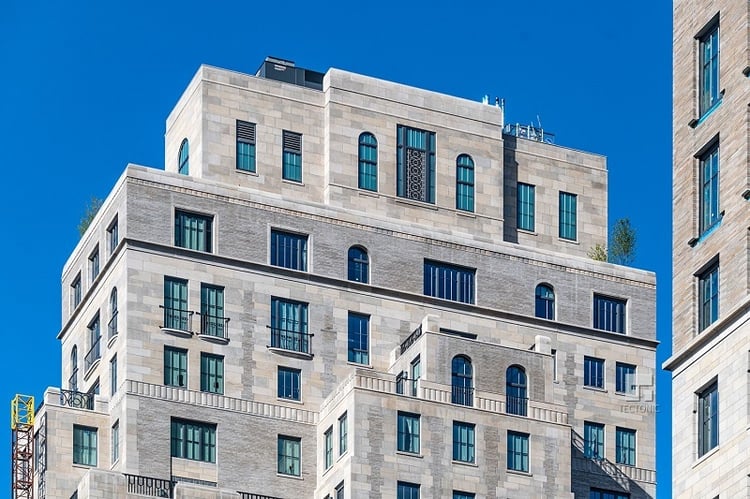 Beckford House, 301 E. 81st Street, NYC nearing completion featuring Indiana Limestone - Full Color Blend™
Beckford House, 301 E. 81st Street, NYC nearing completion featuring Indiana Limestone - Full Color Blend™
With its history as a family company, Polycor is taking a leading role in fair labor practice in stone quarrying.
Importing stone can paint a troubling picture, beyond the obvious carbon footprint caused by transportation from abroad. Simply put, poor stewardship of natural stone quarries endangers people’s lives. And it is an unfortunate reality in many unchecked quarries around the world.
Today, Polycor is the largest natural stone quarrier in the world, but it began as a family company, and the values that built from that small group to the international powerhouse it is today continues to inform how Polycor conducts business. Polycor owns more than fifty quarries worldwide and can ensure a clear, unbroken and safe chain of custody, from the bedrock to cutting slabs to point-of-sale, and provide their workers with a safe and healthy environment. It’s one of only a few producers of natural stone products that can guarantee fair, safe and supportive labor practice for all of its stone workers, quarriers, masons, technicians and installers. Polycor rigorously safeguards its workers, providing extensive use of safety equipment, hardhats, harnesses, steel toe boots and other personal protective equipment and safe conditions in its quarries. Additionally, providing livable wages and associated social and health benefits are top priorities for the business.
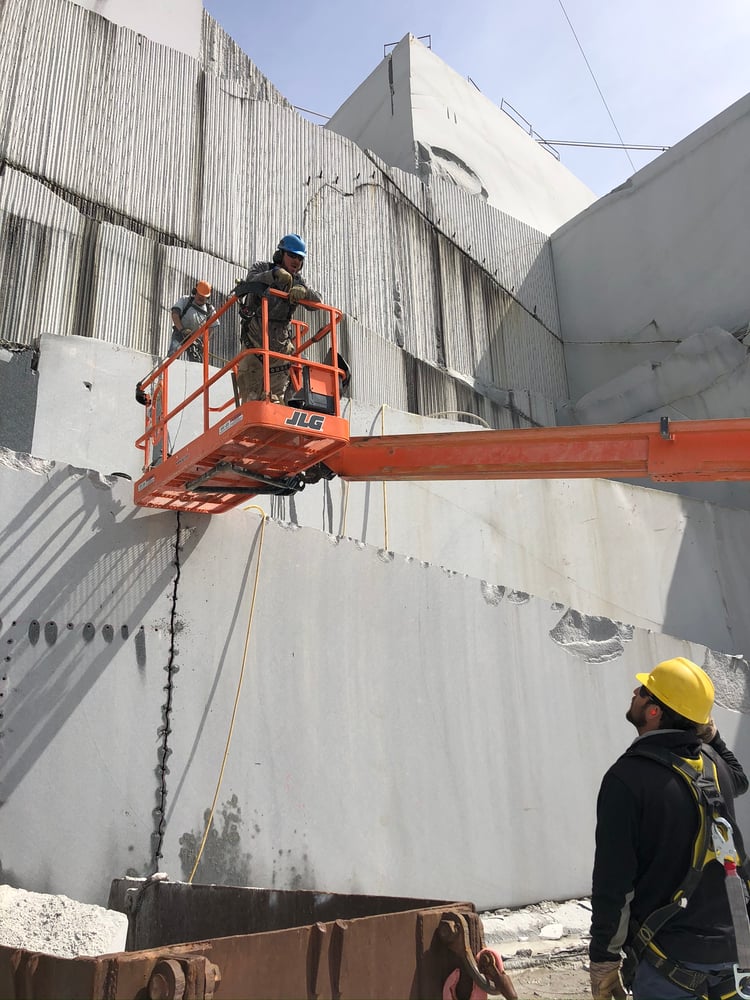 Extensive safety protocols and PPE equipment are in place to ensure the health and welfare of Polycor employees at all sites and facilities.
Extensive safety protocols and PPE equipment are in place to ensure the health and welfare of Polycor employees at all sites and facilities.
This commitment to safety and high labor standards is one of the most important factors in guaranteeing natural stone’s sustainability.
“When a dealer buys a Polycor stone, they are not only buying an astounding slab of stone, they are also supporting the best labor practices in the industry,” Polycor’s media director, Steven Schrenk said. “Polycor will never depend on the exploitation of any person to produce its products.”
And that, sadly, is not always the case. A background paper released by the ILO’s international Programme on the Elimination of Child Labour (IPEC), concluded that nearly all children involved in small-scale mining and quarrying are toiling in so-called “artisanal work sites”.
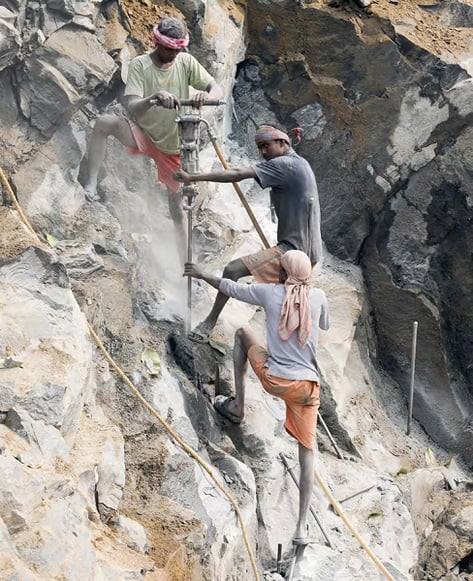 The lack of even the most basic equipment to improve the safety and welfare of workers is largely ignored in other parts of the world.
The lack of even the most basic equipment to improve the safety and welfare of workers is largely ignored in other parts of the world.
The report stated: “Often located in remote, hard-to-reach areas, the sites are difficult to regulate, thus hindering efforts to assist the children working there…..In quarries, children dig sand, rock and dirt; transport it on their heads or backs; and spend hours pounding larger rocks [....] using adult-sized tools to produce construction materials for roads and buildings.”
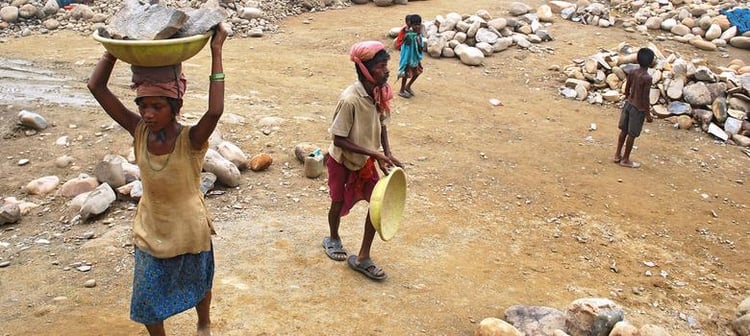 Caisii Mao / AFP
Caisii Mao / AFP
One of the major issues in buying fair trade is that the general public is typically unaware of unethical and exploitative labor practices when shopping for stone. They go into a store and choose what looks like a nice piece of stone that fits their budget. But they don’t know what country it is produced in—a lot of times the distributor doesn't even know because there is a middle man. And even if the distributor might know where it’s from, they can’t always know the conditions that follow the stone from quarry to store.
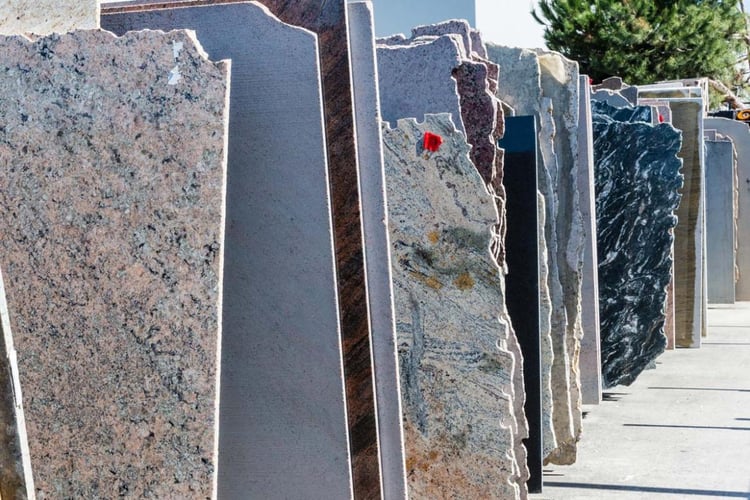 Researching and inquiring about not only the country of origin, but also the company names of quarriers, producers, and the chain of custody will allow for a more informed purchasing decision.
Researching and inquiring about not only the country of origin, but also the company names of quarriers, producers, and the chain of custody will allow for a more informed purchasing decision.
Polycor is heavily involved with the Natural Stone Council, an organization of industry members which promotes natural stone and the checkpoints and safeguards within the industry. The organization comes in to evaluate companies, and encourages quarries to become certified so that the entire process can be monitored every step of the way. At the same time, the organization is doing a big push in education beyond the stone industry to raise awareness about sustainability.
The Natural Stone Sustainability Standard (ANSI/NSC 373), according to its website, “verifies numerous areas of natural stone production, effectively improving the baseline for the environmental performance of natural stone.” This “establishes a set of well-defined environmental, ecological, social responsibility and human health metrics through a multi-stakeholder, science-based approach….”
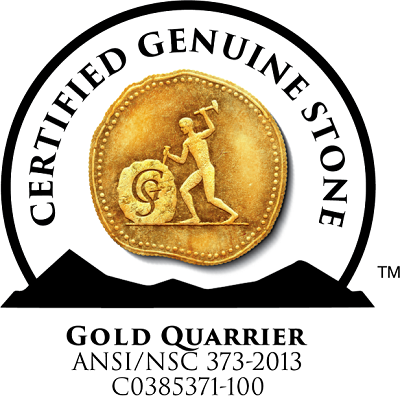
“Polycor enthusiastically advocates and takes part in the work of the organization,” said Schrenk. “When it comes to Polycor you can be assured that you know every step, there is none of that misery associated with the stone.”
And as the market place gets further segmented, responsible quarries need to take a stance.
“We need to call out a lot of these countries that don’t have labor laws or mining safety practices in place and that lack certification,” Schrenk said. “There’s immense value in working with a company that can tell you where that slab of stone came from, and that comes from a certified site.”
Polycor is sustaining the people that work with its natural stone, as well as the planet that produces that stone. As Schrenk says, “When buying any product, and stone in particular, do not subsidize human misery.”
To learn more, read this report issued by the NGO from Holland on quarry conditions.
